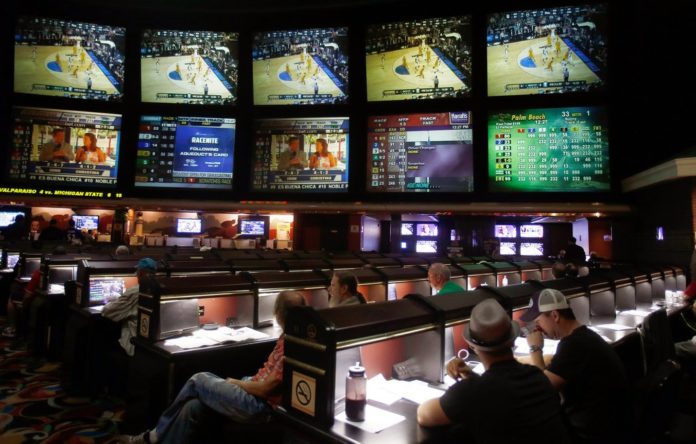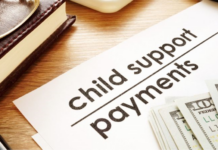Gov. Laura Kelly’s administration is floating a new sports wagering proposal that includes a renewed push for online lottery ticket sales but with a financial incentive.
Early in December, top aides to the governor rolled out a new sports betting proposal in a virtual meeting with casino executives, lobbyists and legislators.
The presentation was billed as a starting point in hopes of reaching a consensus proposal for the Legislature to consider next year.
So far, 20 states have sports wagering in place, including neighboring Iowa and Colorado, according to ESPN.
The latest proposal – like others considered earlier – calls for the so-called iLottery, where Kansas Lottery tickets are sold online.
The proposal calls for the state to share iLottery revenues with the casinos, which could bring them millions more in extra revenue.
It also included the possibility of allowing certain retailers to offer parlay sports bets, which involve two or more bets combined into one.
The proposal presented to the industry did not say anything about what data would be used for sports betting, nor did it address paying fees to the sports leagues.
The iLottery, however, has been one of the biggest hurdles to authorizing sports wagering in Kansas.
The Kelly administration has vigorously pushed for wrapping iLottery together with sports wagering, hoping that it would help boost lottery sales.
Online sales are seen as a way for lotteries to stay relevant and remain tied into their customers.
Michigan started online sales in August 2014, for instance. Sales have continued to grow without eating into other lottery sales, officials there said.
The net revenues from online lottery sales in Michigan grew from about $600,000 in 2014 to about $94 million in 2018.
Combining the two activities would mean the Legislature could vote one time to expand gambling, instead of twice, once for iLottery and once for sports wagering.
But casino executives have been reluctant to go along with iLottery, fearing the graphics, animation and music in the iLottery app might look too similar to their slot and video machines and effectively water down their customer base.
At one point last session, the govenor signaled she would veto sports wagering legislation that did not include an online component.
The Senate passed a sports wagering bill earlier this year, but with a narrowly tailored iLottery provision that was seen as too restrictive.
There was discussion of bringing an amendment tweaking the iLottery provision on the Senate floor, but it was never offered because of a lack of support.
It remains to be seen how a more conservative Legislature might receive iLottery.
The House – less conservative earlier this year – did not act on the Senate bill before lawmakers hurriedly adjourned because of the pandemic.
But the administration has come up with an idea of giving the state’s four casinos a share of the revenue generated by the iLottery.
A proposal shown to the casino executives called for giving the casinos revenue from lottery tickets sold on their apps with the added feature of allowing lottery players to earn loyalty points that could be used at the casinos.
Under the proposal, the lottery would sell online through its own app and the state’s four casinos could sell through their apps.
The proposal calls for splitting iLottery revenues, with the state getting a 90% share and the casinos receiving a 10% commission.
State officials loosely estimate that iLottery would generate $80 million to $120 million over its first five years, with 50% of that generated through casino-affiliated channels.
Based on those figures, the state’s four casinos would collect $4 million to $6 million.
The state, meanwhile, would keep between $76 million to $114 million, before operating costs, according to estimates provided by the administration.
The Kelly administration believes the new proposal would allow casinos to earn extra income through iLottery sales, without any extra expenses on their part while driving customers to their brick-and-mortar facilities.
It argues that casino customers playing iLottery on the casino apps could earn loyalty points to drive more business back to the properties.
iLottery players also could redeem their prizes at the casinos, further helping to enhance their bottom line.
A spokesman for the governor said Thursday that the administration was not ready to discuss the issue publicly.
An executive for Penn National Gaming, the operator of the Hollywood Casino in Kansas City, declined comment on the proposal.
Efforts to reach Boyd Gaming, operator of the Kansas Star Casino near Wichita, for comment were not successful on Thursday.
Gaming officials were told that Kansas Lottery could determine the types of bets that
could be made as well as select the professional sports teams and leagues for wagers.
The Lottery also would determine odds ranges within a certain scope.
The casino managers would set individual odds per game within the preapproved ranges.
If the casinos want to add sports leagues for wagering, they can work with the state
to expand what’s available for betting.
State estimates indicated that over the first five years of sports wagering, total bets placed through the casinos would total between $500 million and $750 million with another $100 million to $150 million through other retailers.
After paying out winners, the casino revenue would be between $30 million and $45 with the state keeping about $3 million to $5 million, which would be a tax rate of about 11% to 12%, estimates show.
Retail revenue would total $25 million to $37 million after paying out winners with the state collecting $24 million to $35 million after commissions and before operating costs.
















